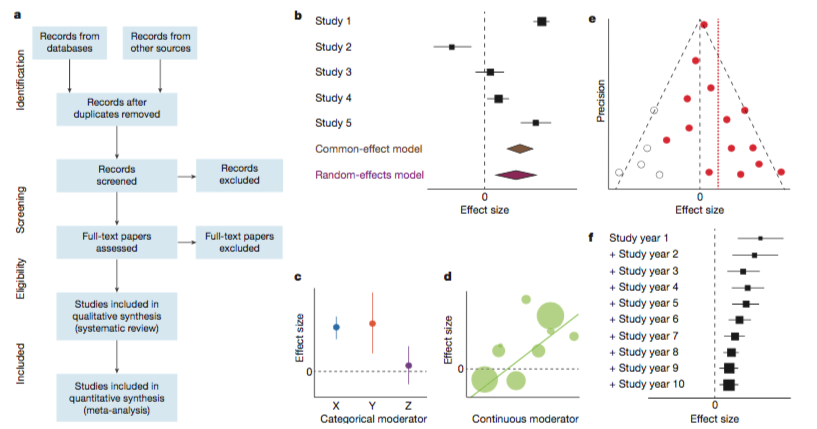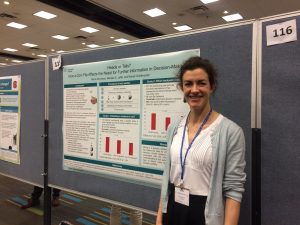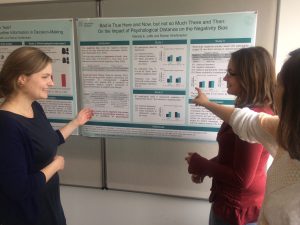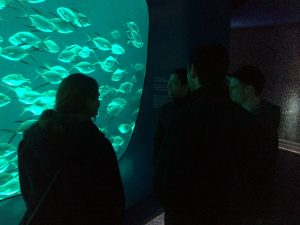In the beginning of March, Mariela Jaffé, Matt Keller, and Maria Douneva flew to Atlanta to attend the annual convention of the Society for Personality and Social Psychology. With 4,000 participants and 8 parallel sessions, there was a lot to see and experience apart from presenting own research. A non-research highlight was the student night at the aquarium – if you should ever be in Atlanta, definitely go there!
Archive for March, 2018
Tobias Vogel

Tobias Vogel (University of Mannheim) is visiting Basel to give a talk on Thursday 5 April . . .
Do we really like the average guy? Prototype preferences and their reversals
Theoretically, average stimuli should be easier to process and in turn liked better than outliers. Substantiating this notion, previous studies showed that a category´s central tendency is more fluent and attractive than the category’s exemplars. Yet, under some conditions the effect has not been observed. Here, I propose and demonstrate conditions for which such beauty-in-averageness effects (or prototype preference effects) level off, or even reverse. In a first set of studies, I show that averages are disliked depending on properties of the stimulus distribution. That is, averages can be relatively atypical members of a category, and in turn disfluent and unattractive. In a second set of studies, I demonstrate that averages can be unattractive depending on the valence of the category they belong to.Together, the results of the present paper indicate that the well-established phenomenon of beauty-in-averageness is not universal, but depends on clearly defined features of the context. Rather than questioning the existence of the phenomenon, the present approach allows for a theoretical integration of seemingly contradictory results. These findings will be discussed against the background of prominent theorizing in social cognition on the one hand (e.g., Gawronski & Bodenhausen, 2006; 2011), and theorizing on cognitive fluency on the other (e.g., Reber, Schwarz, & Winkielman, 2004).
David Funder

David Funder is visiting from University of California Riverside and will give a talk on Thursday 22 March. Here is his outline:
Accuracy in personality judgment: A (very) long view
In this talk, I plan to provide an overview of more than 30 years of research on accuracy in personality judgment, describing how it evolved over time and the conclusions I have reached. My research began with four questions (1) Are judgments of personality always or mostly wrong? (2) When are they most likely to be right? (3) How is accurate personality judgment possible? (4) How can personality judgments become more accurate? I believe a few decades of research have shown that the answers are (1) no (2) when the judge, target, trait and information are “good”; (3) Accurate judgment is possible when relevant information is available to the judge, who detects it and utilizes is correctly; (4) Expand opportunities for relevant information to be emitted, available, detected and correctly interpreted. Finally, I will note that when one has answered one’s research questions to one’s own satisfaction, it is probably time to find a new topic.
Tom Schonberg

On Thursday 15 March Tom Schonberg, University of Tel Aviv, will give a talk in the Social, Economic, and Decision Psychology Colloquium.
New behavioral and imaging findings on the cue-approach effect: A non-reinforced mechanism of behavior change
Tom and co-workers recently developed a manipulation named the cue-approach task to influence choices of snack food items relying on non-reinforced mechanisms. In the task, a neutral tone and a button press are repeatedly associated with specific pictures of items in a session lasting less than 1 hour. In a subsequent probe phase participants choose between pairs of items where only one of the items in each pair was previously associated with the cue and button press. Replicated results show that this training leads to preference changes favoring the previously cued item and that these changes last for up to several months. Functional MRI results show a value change signature in the ventro-medial prefrontal cortex during the choice phase. In this talk, Tom discusses new studies where they were able to change preferences towards other stimuli such as IAPS images, faces and fractals, which attest to the generality of the effect. He will discuss new imaging findings that begin revealing the putative mechanisms underlying this effect.
happy 40th birthday, meta-analysis!

Nature is celebrating the recent 40th birthday of meta-analysis by publishing a review on this method (see below for title/abstract/reference). Perhaps this is interesting to those students learning about evidence-based decision making this semester…
Meta-analysis and the science of research synthesis
Meta-analysis is the quantitative, scientific synthesis of research results. Since the term and modern approaches to research synthesis were first introduced in the 1970s, meta-analysis has had a revolutionary effect in many scientific fields, helping to establish evidence-based practice and to resolve seemingly contradictory research outcomes. At the same time, its implementation has engendered criticism and controversy, in some cases general and others specific to particular disciplines. Here we take the opportunity provided by the recent fortieth anniversary of meta-analysis to reflect on the accomplishments, limitations, recent advances and directions for future developments in the field of research synthesis.
Stefan Trautmann

On Thursday 8 March, Stefan Trautmann, University of Heidelberg, will give a talk in the Social, Economic, and Decision Psychology Colloquium.
Inequality, Fairness and Social Capital
We study the effect of unjust inequality on social trust and trustworthiness, and its separate effects on the haves and have-nots, in a controlled economic experiment. We do find evidence for a negative effect of unfair economic inequality on social interactions. Probing the boundaries of this effect, we find that a direct responsibility of the well-off person for the outcome of the worse-off person is necessary for the erosion of social capital in our setting. Moreover, our data do not support the view that higher status or wealth leads to an erosion of pro-social attitudes: the haves are always more generous.



